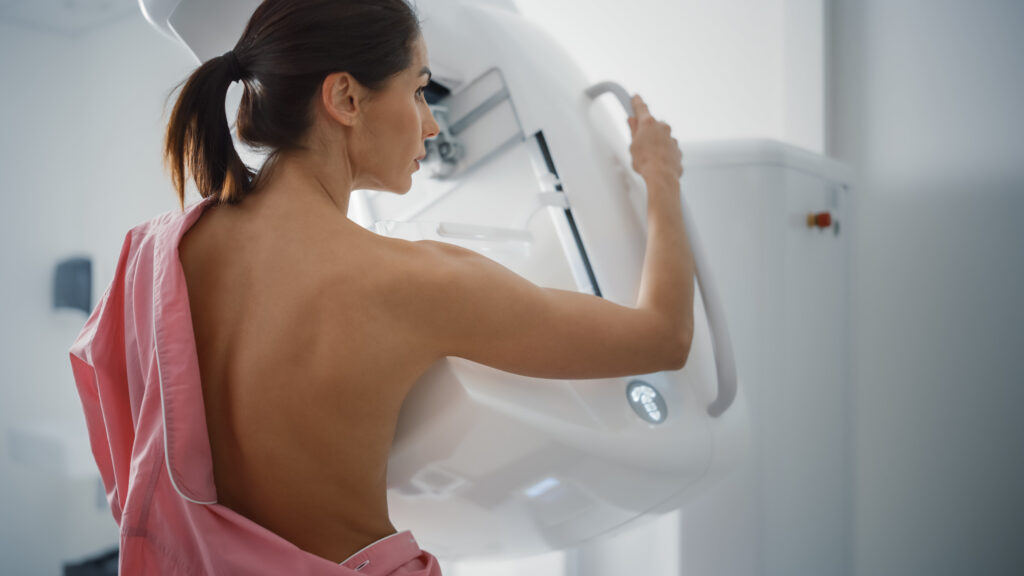When it comes to protecting our health, it is crucial to be proactive. The key to a long and happy life comes down to a range of factors, including genetics, lifestyle and preventative measures. With many serious conditions, if symptoms are caught early enough, the issue can be treated or resolved before it has a chance to develop.
Maintaining good health doesn’t have to be complicated. You’ll need to know your body well and understand how the measures you take can improve your chances of living a longer and healthier life. Health check-ups can be an invaluable tool to help you better understand your body and any possible issues you may face in the future. In this article, we will explore the benefits of health check-ups and how to get the most out of them.
What Is A Full Health Check-Up?
A full health check-up involves a range of non-invasive tests to generate an overview of your health and any risk factors you may have. During the check-up, blood will be drawn to test for different risk factors, and you will answer some questions about your lifestyle, history and family medical history to ensure that all the right tests are conducted.
What Does A Full Health Check-Up Include?
Your health check-up will usually start with some questions about your lifestyle, medical background and family history. This can help the healthcare professional to understand the specific risks you may face and what tests, in particular, may need to be carried out. The information required will usually include details of any family history of illness or disease, what your diet is like, how often you exercise, how much alcohol you drink and whether you smoke.
Next, you can expect to have your blood pressure checked and also have an ECG to look at the electrical activity of your heart. Finally, a blood sample will be taken. This will be tested then and there to measure your cholesterol and blood sugar levels. Depending on the private assessment plan you choose, you can also benefit from a wide range of further tests, including:
Female Health Checks
There are some health risk factors and conditions that are particularly important for women to be screened for. Early diagnosis and intervention can have a massive difference in outcomes for serious issues such as cervical or breast cancer.
Bowel Cancer Screening
Bowel/colon cancer is one of the most common types of cancer affecting people in the UK. In its early stages, patients may not experience any symptoms, which is why screening is often vital to detecting bowel or colon cancer early enough to treat it effectively. A colonoscopy is an effective way to identify bowel cancer or polyps that could become cancerous in the future.
Breast Cancer Screening
Regular screening for breast cancer can be a lifesaver, with mammograms capable of detecting cancerous lumps or cells before they progress to a more serious issue. A mammogram is a type of x-ray that focuses on the breast tissue and is able to identify anomalies.
Why A Health Check-Up Is Important For Women
Regular check-ups are an invaluable way to catch illnesses before they can progress to a more serious level. Because many serious conditions don’t have obvious symptoms until the issue has progressed, screening can be crucial for giving patients the best chance at preventing or making a full recovery from issues like heart disease, cancer, type 2 diabetes and stroke.
Women can face a wide range of issues throughout their lifetime that can be more effectively treated or prevented with early intervention. Breast, bowel and cervical cancer all have massively increased chances of effective treatment if caught early, before symptoms have even started to show. Women also experience loss of bone density as they age, which can increase their chances of developing issues like weak or brittle bones. To minimise the impact on quality of life, early detection is crucial.
For more information, please read our article on disease prevention in women.
How Often Should You Have A Health Check-Up?
How often you should get a health check-up can depend on a range of factors. Recommendations will vary based on your age, general health, history and existing health conditions. Typically, health check-ups are recommended every three years for people under 50 and every year for people over 50. You may also want to get more regular check-ups if you are anxious about your health, as the peace of mind they offer can be invaluable.
It is also important to see your doctor regularly, particularly if you notice any new symptoms or issues ahead of your regularly scheduled check-up. This is particularly critical for patients with ongoing or chronic health conditions which require closer monitoring.
Our Health Assessment Packages
Women’s experience of various disease is different because women’s symptoms are often milder, they can arise later in the illness, and they can be unusual. Because heart disease in women often goes undetected, the damage caused can be more advanced and outcomes can be poorer than for men.
Some tests used to diagnose heart disease are also less accurate in women than they are in men. Women may experience a heart attack with no symptoms of chest pain. They may experience nausea or vomiting, which are oftentimes confused with acid reflux or the flu.
Clinicians believe that the decline in bone density and its complications solely affect postmenopausal women, which may create health disparities. However, osteoporosis and its complications affect both genders but at different ages and rates. Osteoporosis is four times more common in women than in men, but some evidence indicates that men tend to have more osteoporosis-related complications.
The Cullinan Assessment was created by Echelon Health with women in mind, built from the ground up to address this difference in experience.
The Cullinan Assessment is designed for women who are 40 years of age or older and is intended to allow for early detection of diseases associated with this stage of life as well as the diseases that are the leading causes of premature death in women, including osteoporosis, breast and ovarian cancer, coronary heart disease and more. The following scans are part of this assessment:
- Comprehensive bloods + Hormonal Profile + cancer markers
- Digital mammogram
- Transvaginal Ultrasound
- ECG
- CT Coronary angiogram
- CT Chest
- CT Bone Density
- Full Body Mole Check
It is designed as a holistic experience, with body and soul in mind. In addition to the highly detailed health assessment, our clients benefit from a chauffeur driven round trip transfer within 100 miles of our Harley Street clinic and an overnight stay at The Mandarin Oriental Hyde Park, which includes a CBD oil deep relaxation massage.
The Cullinan assessment is a ground-breaking preventative health evaluation specifically designed for women. It enables them to take charge of their health and get an unmatched understanding of their bodies at a critical juncture in their lives.
Please do not hesitate to contact us if you have any questions concerning the Cullinan Assessment or any other assessments provided by Echelon Health. We would be happy to assist you.
Sources
https://www.alldaymedicalcare.com/blog/the-importance-of-getting-your-womens-health-screening
https://hje.org.uk/benefits-of-private-health-care-check-up/
https://www.nhs.uk/conditions/nhs-health-check/what-is-an-nhs-health-check-new/



